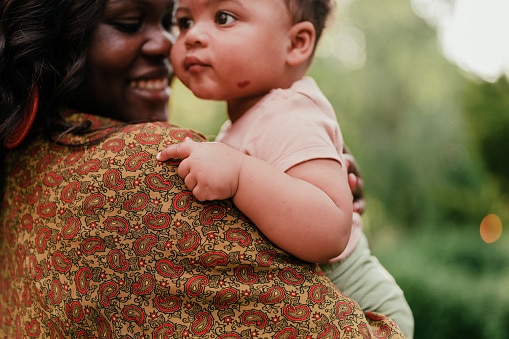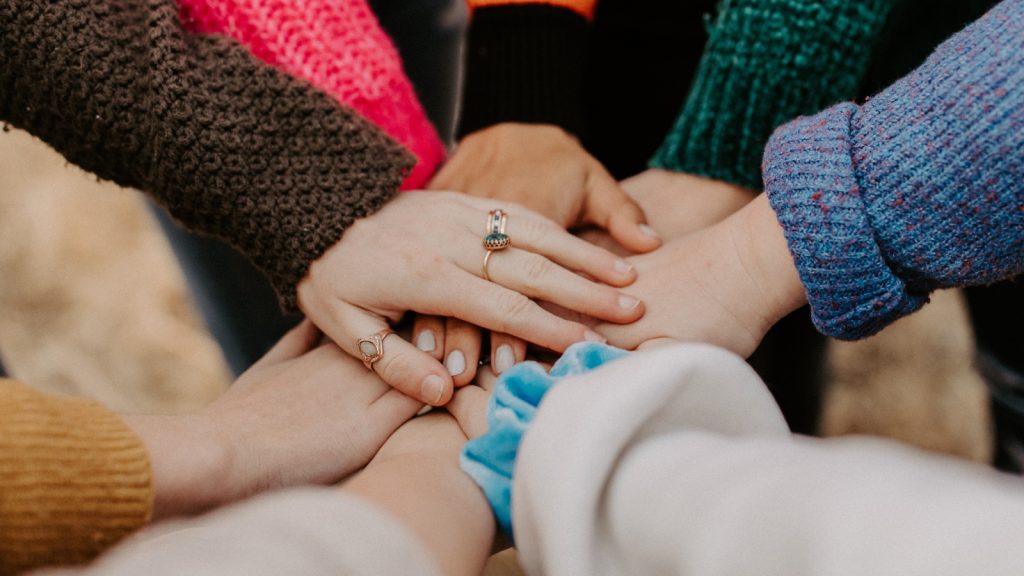A child’s earliest years set the foundation for a lifetime of health, learning, and well-being. For 60 years, the Packard Foundation has worked to make sure that families have what they need to support their children’s health and development. While our grantmaking strategies have evolved over the years, our work has consistently focused on ensuring that children get a strong, healthy start so they can reach their full potential.
In recent years, Foundation grantees have contributed to impressive progress to support children’s health and development. Grantees have helped to expand universal preschool and transitional kindergarten programs in California and to strengthen the early learning education system, increase access to paid family leave, and expand health insurance coverage and access to quality health care nationally.
This progress is meaningful, but there is much work left to do so all families with young children can thrive. Today, Black, Indigenous, and Latino families face stark disparities in maternal health and child development outcomes. Most urgently, as the United States grapples with a growing crisis in maternal and infant health – with infant deaths on the rise for the first time in decades and maternal mortality more likely in the U.S. than in any other high-income nation – these same families disproportionally bear the burden. Pregnancy-related deaths are 2-3 times more likely for Black and Indigenous women compared with White women, and Latino families have experienced an increase in maternal mortality since the onset of COVID-19. These disparities are largely fueled by racial biases in the systems families turn to for support, making it difficult for families of color to get the tools and resources they need to ensure a strong, healthy start for their children.
Moving forward, the Foundation’s new Children and Families initiative will work to ensure the systems that support moms, families, and children are stronger, better connected, and more equitable. We will expand our focus on young children to include pregnant people and moms, recognizing that a healthy start for children begins with healthy moms and healthy births.
Finding the way to a healthy start
When a family prepares to have a baby, they embark on a lifelong journey. It can be a time of boundless joy and limitless possibility as they imagine the life that’s about to begin.
There’s no roadmap for this journey, and expectant moms and parents are driven by one thing: what’s best for their baby. They have to find a healthcare provider and arrange prenatal care, come up with a birth plan, ensure they’ll have paid leave from work, and line up a pediatrician. And once their baby arrives, they’ll have to find reliable and trustworthy child care, look after their own physical and mental health, provide nutritious food, and so much more – all while continuing to make ends meet.
While there are community organizations, government programs, and social services that exist to help families navigate this complex journey, they often fall short – unable to account for the complexities of what life is like, especially for Black, Indigenous, and Latino families. Instead, when families seek support – through the healthcare, childcare, and financial supports systems – they find systems that are often disconnected and undermined by harmful biases, placing the burden on families to create a patchwork of support for themselves and their baby.
Our new initiative
Despite these significant challenges, communities across the U.S. are finding ways to ensure that welcoming a baby is a joyful and positive experience and to help families build the foundation for a lifetime of health and well-being for their children. To improve maternal and child health outcomes, our new Children and Families initiative will invest in community-led strategies while transforming the systems meant to serve families so they are more accessible, connected, and equitable. We will focus on reducing racial disparities in outcomes, recognizing that the future we envision – one in which all children and families thrive – is not possible while such stark inequities persist.
The Children and Families initiative will:
- Invest in community partners who are working on innovative approaches to reduce racial disparities in maternal and child health outcomes. Community organizations are partnering with service providers and advocates who are acutely familiar with the experiences and needs of moms, pregnant people, and families with young children. These organizations are using approaches like Black-centered prenatal care, culturally responsive birthing centers, doula networks, and community health workers. We’ll support them to strengthen and uplift their work as they build a comprehensive system of care that meets the needs of families.
- Bolster efforts to strengthen and connect the healthcare, childcare, and financial supports systems so there is no wrong door for a family to seamlessly access the quality care and support they need. We’ll work to ensure that government agency officials like state Medicaid directors alongside hospital administrators and networks of healthcare and childcare professionals have the knowledge, technology, and networks they need to reshape these systems from within to better serve all families.
- Support a national advocacy effort to connect policymakers and government leaders with the research, data, and analyses they need to champion policies designed to support families with young children. These leaders have the collective power to clear a path for progress, and we’ll work to help ensure the policies they implement are responsive to the experiences and needs of families.
These approaches are connected and interdependent, and all are needed to create lasting change.
The Children and Families initiative will make focused investments in select communities in California, Louisiana, and Mississippi. In California, the initiative is part of our decades-long approach to building thriving communities in our home state. In Mississippi and Louisiana, our initiative will work in partnership with the Foundation’s broader effort to support reproductive health and racial justice leaders in the U.S. South. The initiative will also fund nationally, including in support of the Finish Line Network of advocates, which continues to drive expansion of health insurance coverage and access to quality health care for children and families.
Systems that work for moms, pregnant people, and children
All too often, the very systems designed to help families can be confusing and disconnected, acting as barriers to the care and support families need. Through our new initiative, we will work alongside our grantees and partners to collectively do the hard work of reimagining these systems of care with families, especially families of color, at their center and create solutions that endure for generations to come.













